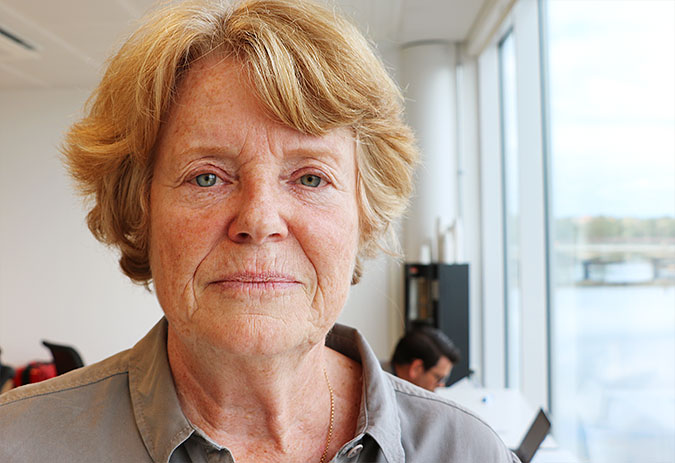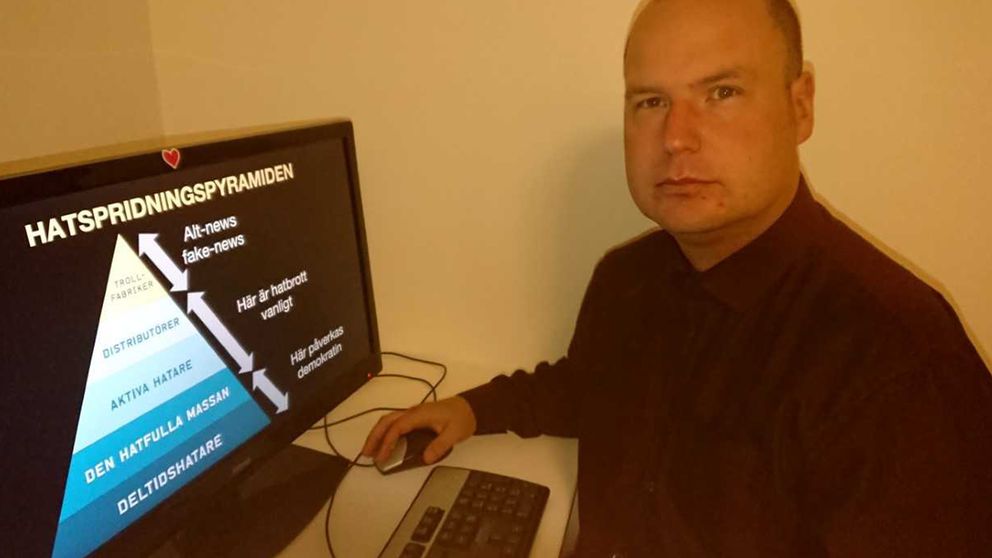Official self-abnegation is alive and well, but faces a growing pushback.
Bruce Bawer
https://www.frontpagemag.com/fpm/272463/checking-sweden-bruce-bawer
January 14, 2019

Lise Bergh (Save the Children/Creative Commons)
I’ve told this one before. Back in 2005, Mona Sahlin, who from 2002 to 2004 had served as Sweden’s minister of integration, told an audience at a Swedish mosque that many native Swedes envied them, because, she said, immigrants have real cultures and histories while Swedes have only “silliness” such as the commemoration of Midsummer Night. Later that year, at a debate on integration policy, the Norwegian activist Hege Storhaug asked Lise Bergh, who had succeeded to the post of Swedish minister of integration, whether Swedish culture was worth preserving. Blithely, Bergh replied: “Well, what is Swedish culture? And by saying that, I think I’ve answered the question.”
Those two appalling comments reflect a mentality – one that is shared, unfortunately, by a great many Swedes – that goes a long way toward explaining the breathtakingly self-destructive policies that, over the last few decades, have sent Sweden barreling down the road toward cultural self-annihilation. Of course, other Western European countries are headed down the same road, but they aren’t moving quite so quickly and eagerly, and with such a fatuous, pathetic air of self-satisfaction, toward their grim fate. The difference lies entirely in that Swedish mentality. Even more than most other Western Europeans, Swedes, especially the self-consciously sophisticated urban elites, are possessed of a degree of self-abnegation that is nothing short of pathological.
Consider this. In the U.S., we have “Native Americans.” Canada has the “First Nations.” Australia has its “aborigines.” What all these peoples have in common is that they were there first. In Sweden, the native peoples, the ur-folk, are, needless to say, the Swedes themselves. There are ten million of them, and they’ve been there for millennia. But when establishment journalists and politicians in Sweden refer to their country’s “indigenous people,” they’re not talking about themselves. No, they’re talking about the 20,000 Sami (also known as Lapps or Laplanders) who live way up in the far northern reaches of Sweden, tending reindeer and wearing funny red outfits.
Now, the Sami (of whom there are also several thousand in northern Norway and Finland and the neighboring parts of Russia) are no more indigenous to Scandinavia than are the Swedes themselves. The earliest references to both peoples, as it happens, appear in the same work – De origine et situ Germanorum, written by the Roman historian Tacitus and published in A.D. 98. And yet Swedes refer to the Sami people, but not themselves, as “indigenous.” Think of it: it’s as if native French speakers in Paris or Nice or Toulon were to regard themselves as less authentically French than the speakers of Breton or Alsatian, or as if Castilian-speaking Madrileños were to indicate, by word or deed, that Catalan speakers in Barcelona were more genuinely Spanish than themselves.
So, it is that Swedes, when it comes to the Sami, have – at least at the highest levels of government, society, and cultural life – embraced, in the name of some thoroughly twisted concept of morality, a bizarre, self-denying lie. And they have, as we well know, done essentially the same thing in regard to immigrants from the Muslim world. In an article published on New Year’s Day, Sweden’s current Minister of Culture and Democracy, a woman by the name of Alice Bah Kuhnke, briefly described a new law that expands minority-group rights, guaranteeing, for instance, the right of foreign-born kindergartners to be taught in their own languages and the right of foreign-born seniors in retirement homes to be taken care of by people who speak their languages.
There is, to be sure, nothing radically new about any of this: the Swedish government has long considered it a priority to ensure that immigrants are able to live out their lives in Sweden without ever having to be contaminated in the slightest degree by anything Swedish.
Apparently by way of justifying the introduction of these new programs – at a time, note well, when native Swedes are already smarting from severe cuts in education, housing, medical care, and the like owing to ballooning government expenditures on Muslim immigrant communities – Bah spent most of her article promoting something that is just as purely the stuff of fantasy as the idea that the Sami are Sweden's only “indigenous people”: namely, the proposition that Sweden has always been a country of immigrants. “The story of our national minorities and our indigenous peoples,” Bah wrote, “is the story of Sweden….Sweden has always been a place where people with different languages, history and culture meet. It is easy to believe that this is a modern phenomenon….But the diversity that exists in Sweden has a deeper and longer history.”
By any measure, this is an absurd claim. It could hardly be less true. Few countries on earth have been as ethnically and culturally homogeneous for as long as Sweden has been, and for a member of the Swedish cabinet to maintain the exact opposite – and to have her lie ratified by publication in one of the country's major newspapers, Svenska Dagbladet – is disgraceful even by contemporary Swedish standards. “As recently as 1940,” observed a writer for the Friatider website in a response to Bah’s disingenuous assertion, “only one percent” of Swedish residents were foreign-born. (And the great majority of that one percent, I would wager, were Norwegians, Danes, and Finns.) “The last major immigration wave,” noted Friatider, “occurred during the Bronze Age 3,500 years ago.”

Tomas Åberg, project manager for Näthatsgranskaren, or “Network Examiner” an internet-based group who report Swedes to authorities if they are caught posting “hate speech” online, has been nominated for the “Swedish Hero” award by one of the country’s major newspapers.
True, all of it. But in Sweden, you challenge the official lies at your peril. The Friatider writer went on to report on one Tomas Åberg, who makes a tidy regular income, at taxpayer expense, by reporting to the Swedish police about Facebook users who, in his view, are guilty of “incitement against ethnic groups” – a term that can include anything from casual bigotry to informed criticism of Islam to reasonable disagreement with Sweden’s immigration rules to expression of frustration with a welfare state that prioritizes everyone else over ethnic Swedes. In 2017-18, Åberg ratted on no fewer than 1,218 people; thanks to him, the number of Swedes convicted of “incitement against ethnic groups” rose tenfold. In gratitude for his efforts, the newspaper Aftonbladet named him a “Swedish hero.”
Yes, more and more Swedes are snapping out of their dangerous collective delusion, and consequently the nationalist, Islam-critical Sweden Democrats – who in last September’s parliamentary elections won 17.5% of the vote, up from 2.9% in 2006, 5.7% in 2010, and 12.9% in 2014 – are now poised (if it’s not already too late) to have a real impact on immigration and integration policies. Even some members of the political establishment are rejecting the self-destructive mentality represented by the likes of Sahlin, Bergh, Bah, and Åberg. Last April, for instance, Linda Nordlund, a former head of the Liberal Party’s youth wing, criticized Bah for having said that in meetings with Sami representatives she is “always on the side of the indigenous peoples. Always.”
That, Nordlund argued, was the language not of a government minister but of an activist. In fact such rhetoric has for over a generation been the spécialité de la maison of virtually the entire Swedish political class, especially those, such as Sahlin and Bergh, who've been tasked with calling the shots on integration policy. Yet Nordlund’s very ability to distinguish between cabinet members and activists, and to publicly chide one of the former for behaving like one of the latter, is itself a sign of budding sanity and self-respect in a polity that has suffered for too long from a dangerous lack of both.
Bruce Bawer is the author of “While Europe Slept,” “Surrender,” and "The Victims' Revolution." His novel "The Alhambra" has just been published.
2 comments:
You can always tell a Swede, but you can't tell him much.
Hi greeat reading your post
Post a Comment